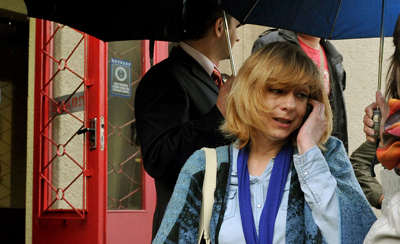
Lukashenko can unshackle Khalip, a ‘victim of the regime’
Is Irina Khalip, the prominent Belarusian journalist, free to travel? President Aleksandr Lukashenko, whose government prosecuted her on bogus charges of creating mass disorder, says that she is. That Khalip has not, the president said, shows that she would prefer to be known as a “victim of the regime.” Of course, this all seems strange…
Twenty-three days to take action against impunity
Approximately 30 journalists are targeted and murdered every year, and on average, in only three of these crimes are the killers ever brought to justice. Other attacks on freedom of expression occur daily: bloggers are threatened, photographers beaten, writers kidnapped. And in those instances, justice is even more rare. Today, the Committee to Protect Journalists…

Most censored nations each distort the Net in own way
One big reason for the Internet’s success is its role as a universal standard, interoperable across the world. The data packets that leave your computer in Botswana are the same as those which arrive in Barbados. The same is increasingly true of modern mobile networks. Standards are converging: You can use your phone, access an…
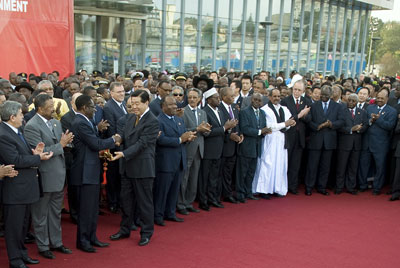
China not most censored, but may be most ambitious
China didn’t make the cut for our 10 most censored countries. While the Chinese Communist Party’s censorship apparatus is notorious, journalists and Internet users work hard to overcome the restrictions. Nations like Eritrea and North Korea lack that dynamism.
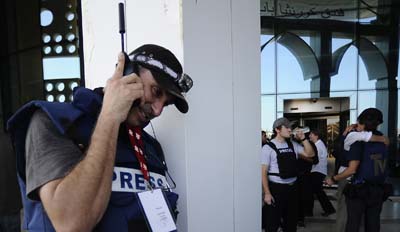
Safer mobile use is key issue for journalists
As the Internet and mobile communications become more integrated into reporters’ work, the digital threats to journalists’ work and safety have increased as well. While many press reports have documented Internet surveillance and censorship–and the efforts to combat them–mobile communications are the new frontline for journalist security.
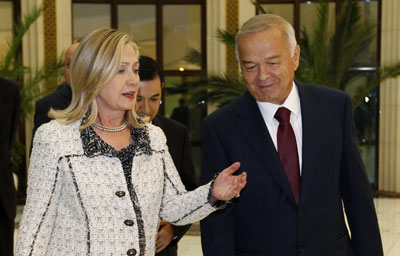
What US can’t accept in Belarus, it supports in Uzbekistan
Last week, President Obama signed into law a bill that expands sanctions against Belarus, whose authoritarian leader Aleksandr Lukashenko continues to imprison his opponents and critics. Lukashenko unleashed the latest crackdown hours after the flawed December 2010 presidential vote, which declared him winner of a fourth term. Repression in Belarus is ongoing. Last week, authorities…

Belarusian website Charter 97 attacked, shut down
It’s not unusual for Charter 97, a Belarusian pro-opposition news website, to be disrupted online. CPJ has documented intimidations, threats, and arrests against its staff members, the murder of its founder, and denial-of-service attacks against the website.

Awardees to their colleagues: Buck the system
The Grand Ballroom of the Waldorf Astoria might seem like an odd venue to stage a call for resistance. Nine hundred people in tuxedos and gowns. Champagne and cocktails. Bill Cunningham snapping photos. This combination is generally more likely to coax a boozy nostalgia than foment a revolution. But the journalists honored last night at…
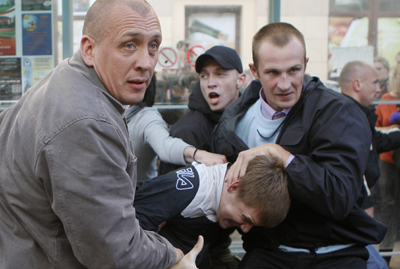
A ray of hope for the embattled press in Belarus?
In a rare development, the Belarusian general prosecutor, Grigory Vasilevich, stepped up for journalists and defended their right to report on ongoing political protests. According to a statement issued by his press office on Friday, Vasilevich sent a letter to Interior Minister Anatoly Kuleshov in which he reminded his colleague of journalists’ rights under the…
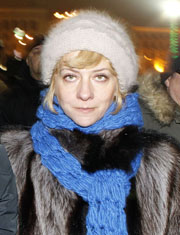
Under house arrest in Belarus for not playing by the rules
It has been four long months since security forces snatched Irina Khalip, at left, from Minsk’s Independence Square while she was reporting on a protest of the flawed December 19 Belarusian presidential vote.While Khalip was giving a live account from the square to the Russian radio station Ekho Moskvy, riot police beat her and forcibly…